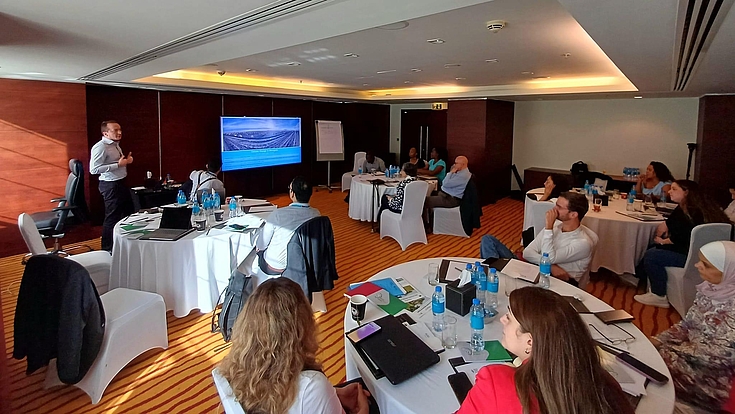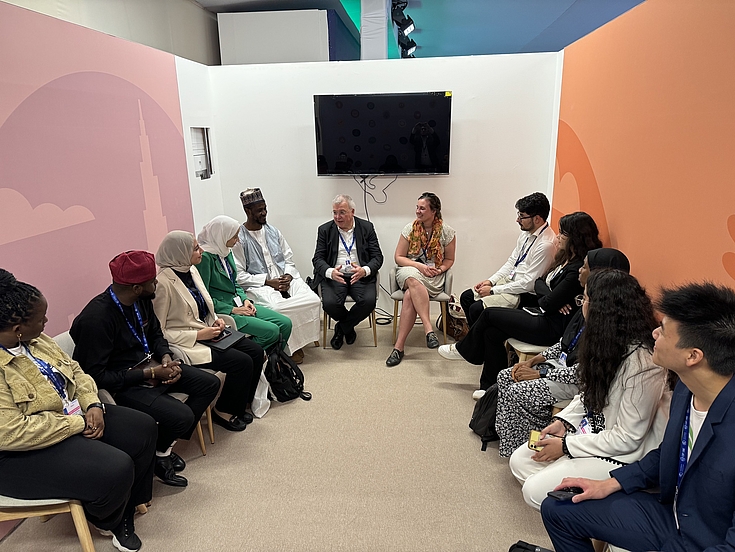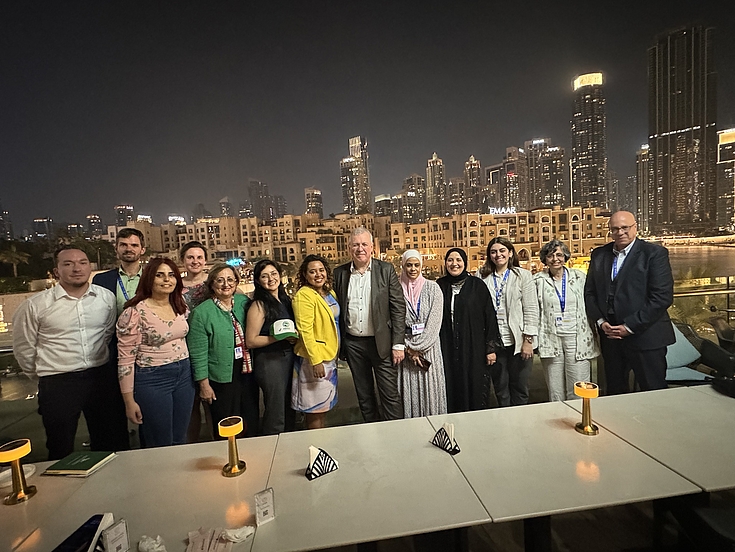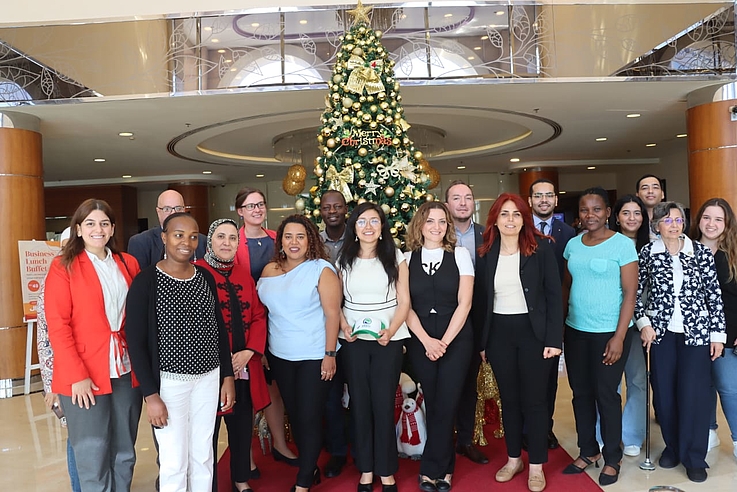UN-Konference
Strengthening climate and environmental networks
During the conference, HSS-Mongolia participated in a workshop with delegates from the MENA region and the GMACC program to present the challenges and opportunities in Mongolia.
Felix Glenk, the Resident Representative of HSS-Mongolia, discussed the challenges caused by climate change in Mongolia as well as projects in the field of environmental law, legal awareness and law enforcement to protect nature. Of particular interest was an event at the COP that focused on the courts' perspective on climate mitigation, which is bound to become more relevant for Mongolia.
Participating in the UNFCCC COP as part of the HSS network provided an opportunity to build and strengthen global networks and develop new ideas for climate adaptation and mitigation for participants from more than 10 countries. In addition to the HSS delegations, Mongolian participants from the United Nations Youth Association's Youth Delegate Program were also present at the conference. This program, which is supported by HSF Mongolia, aims to engage young leaders from Mongolia in nature and climate action at the policy level.
HSS-Mongolia also contributes to a regional project in Asia through its climate hub in Seoul, South Korea. Participation in the East Asian - Australasian Flyway Partnership (EAAFP) aims to protect migratory birds along the flyway from Mongolia and Russia to Australia and New Zealand. HSS-Mongolia is actively involved in the establishment of a similar network along the Central Asian Flyway, which stretches from Mongolia and Central Asia to India. The establishment of this network mechanism will be determined at the Conference of the Parties under the Convention on Migratory Species in Samarkand, Uzbekistan, in February 2023. Supportive legislation and global coordination are crucial to its success.




